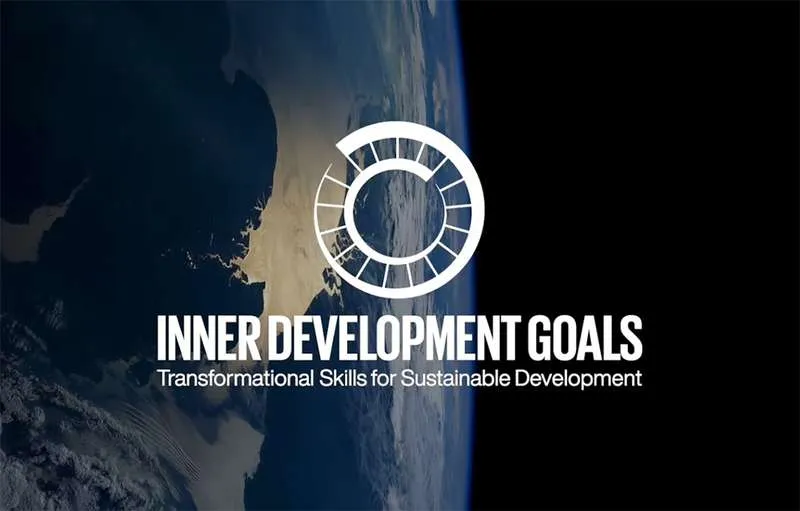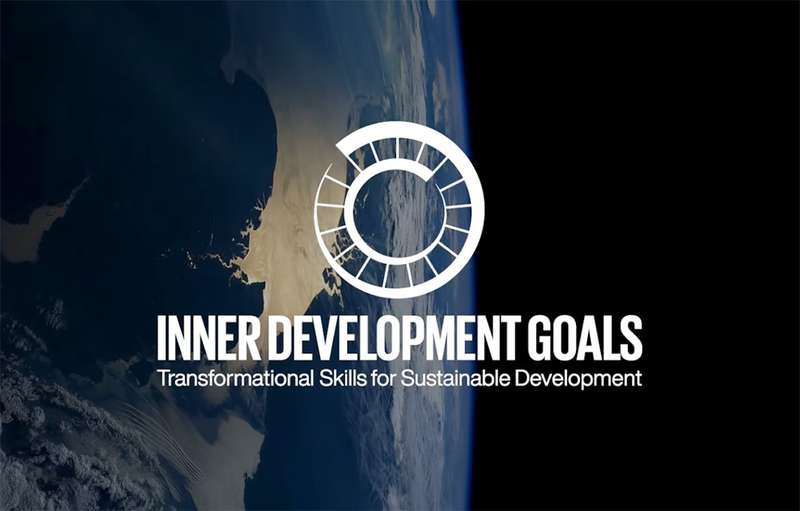SOURCE: Dr. Jacob Nordangård
I recently came across a video by Lisa Logan with a critical examination about a new concept called The Inner Development Goals and decided to take a deeper look. The crazy stuff that originates from my own home country never seems to end.
The Inner Development Goals project works to identify, popularize and support the development of relevant abilities, skills and qualities for inner growth, through consciously supportive organizations, companies and institutions, to better address the global challenges.
The Inner Development Goals concept is the brainchild of Swedish social entrepreneur Thomas Björkman and his Ekskäret Foundation. Björkman is a former investment banker (former chairman of EFG Investment Bank) that morphed into a green visionary. He founded Ekskäret in 2008 with the “aim of supporting the co-creation of a more conscious society.” and has since 2014 been a member of the highly influential environmental think tank The Club of Rome.1
Together with The New Division and 29k Foundation, Ekskäret strategically launched the IDGs in 2020 (it is worth mentioning that New Division created the communication language for the SDGs in 2015).
The aim is to transform the mindset of people to be in line with the United Nations Sustainable Development Goals. This is the art of social engineering or psychological manipulation. Björkman thinks “we need to update our cultural software of our society” to increase our collective intelligence. There is thus no room for individual and independent thinking that challenges their utopian vision for the future.

In a 2018 TED-talk from Berlin Björklund said:
We are about to enter into a society… with Artificial Intelligence, the Internet of Things, and all the other wonderful technologies that can give us a world of abundance within the planetary boundaries, world peace, or totally not.
To succeed with the transition to a “global digitally connected world” everyone has to get on board with the agenda and become active and conscious co-creators of the emerging new social order.
Björklund claims that during the transition from an agrarian to an industrial society, starting in the 1860s, government-funded retreat centers for inner growth were founded all over Scandinavia. The expressed aim was “not to be politically indoctrinated” but finding an “inner compass” to withstand political authoritarian leadership and fundamentalist religion. As this was done during a time when the state was authoritarian, this sounds like a somewhat contradictory claim. The participants should also be introduced to new ideas and technological development and giving them “basic tools for organising civic movements and activism”. That sounds a lot like creating agents of change. To claim that this is not political indoctrination seems totally ludicrous.
According to Björklund the radical ideas was inspired by great German thinkers like Goethe, Schiller, Herder and von Humboldt.
This is also the case this time.
Björklunds TED-talk reminds me of several things:
• The first one is how the American Aspen Institute has invited leaders to their retreat in the Rocky Mountains to reflect on the problems of our day and come up with solutions. The first meeting was held in 1949 to celebrate the birth of Johann Wolfgang von Goethe and to promote the German heritage that had came into bad repute after the war. They have also worked in tandem with the Club of Rome.2 I covered Aspen Institutes influence on the global environmental agenda in my doctoral thesis Ordo Ab Chao: The Political History of Biofuels in the European Union – Actors, Networks and Strategies.3
• The second is Hungarian systems philosopher Ervin László’s Club of Budapest. A sister club to the Club of Rome that since 1993 promotes “a development of a global cultural consciousness with a global perspective”.4 These were based on ideas that had been developed during the preceding decades. László was the editor to Oliver Reiser’s Cosmic Humanism and World Unity (1975), a blueprint for the new global technocratic order, as well as reviewer of Willis Harman’s and Oliver Markley’s Changing Images of Man (1974). László was also the author of the Club of Rome report Goals for Mankind (1977). Both László and Reiser were inspired by Theosophical ideas of spiritual development.
• The third is a meeting that was arranged by Stiftung Mercator and Institute for Advanced Study in the Humanities in Essen in Essen in 2009 called “The Great Transformation: Climate Change as Cultural Change” with participants like Club of Rome member Hans Joachim Schellnhuber (former climate adviser to the Pope, the European Commission, and German Chancellor Angela Merkel), Ottmar Edenhofer (PIK) and Barack Obama’s Climate-Tzar John Podesta. The mission was to discuss “new forms of global governance, a profound shift in attitudes and a new culture of participation”.5 One of the questions that was discussed was:
Can free democratic societies cope with the effects of grave changes in the global climate, or might authoritarian regimes possibly be better placed to enforce the necessary measures?
I think we now have the answer to that one.
• The fourth is obviously Klaus Schwab’s World Economic Forums annual Davos-summits as well as their Young Global Leaders program.
